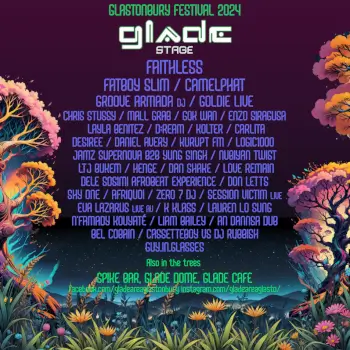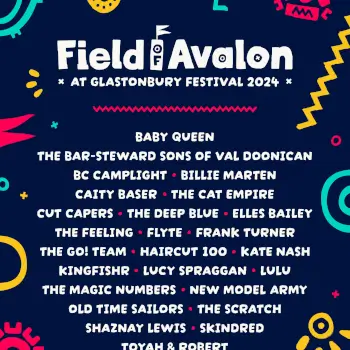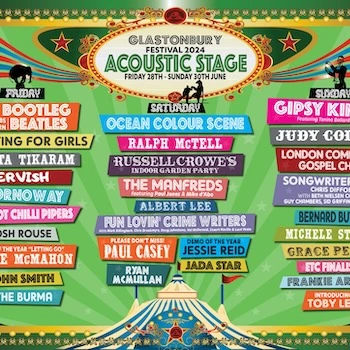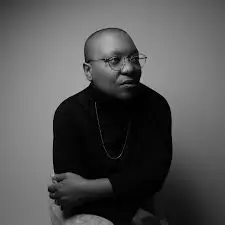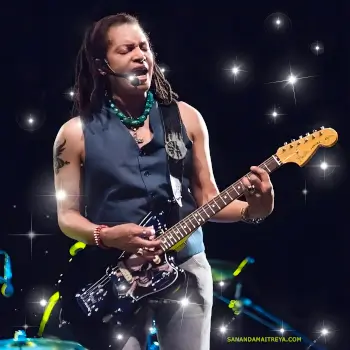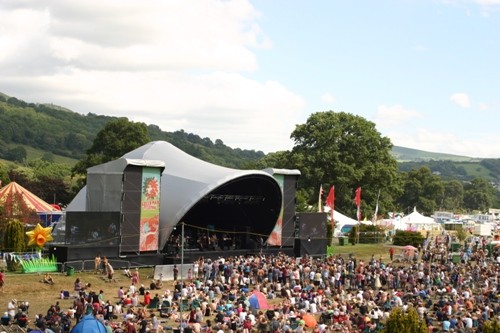
The Green Man Festival 2012
Friday 17th to Sunday 19th August 2012Glanusk Park, Usk Valley, Powys, Wales, NP8 1LP, Wales MAP
£145 adult weekend ticket
Daily capacity: 10,000
Last updated: Tue 7th Aug 2012
eFestivals had a insightful interview with Fiona Stewart the Managing Director of The Green Man Festival an independent music festival held annually in the Brecon Beacons, Wales. The event has evolved from a one-day, 300 capacity event in 2003, to a four-day festival which this year celebrates it's 10th anniversary. Fiona's knowledge of the industry and her views on the current festival industry and it's future are well worth the read.

|
|
Thank you very much, we are very excited about that.
For those that don't know The Green Man festival, how would you describe it? I would say in many ways it's a modern take on an old fashioned idea of a festival. It's all about music, and a lovely location, and lots of interesting new different things you can find every year. We try to keep it organic, and we tend to change things as we need to, it's not something that's been forced, it's a gentle place.
How have you changed it over the last decade?
Well, we've got bigger - we've sold about 13,500 tickets now, and we've moved site, we are now at the beautiful Glanusk Park right in the Black Mountains in Wales, which is an absolutely awe inspiring place to do an event. We now have lots and lots of different areas, we've got the Science area called Einstein's Garden which is where you can hear Professors busking, and things like that, it's quite bonkers. We've also got a Nature Nurture area which has got therapies, massage areas, and things like that. We have lots of art installations all over the event.
We also have a number of musicians that come every year and busk during the event in an impromptu music sessions, it can be anyone from Tom Robinson to a new up and coming band. There's also the dusk until dawn bonfire which goes on every night and gets enormous with lots of people huddled about down there. Lots of musicians from the festival go and play beside the fire. Plus a big area for kids, with masses of stuff to do for children, and also for teenagers, because we felt they were being left out the event and we wanted it to be something all encompassing. And, we've also got the lovely big Green Man as well, who at the end of the event blows up.
How has the audience who come changed over the decade?
The audience are very similar to be honest with you, it's just we've got more of them. I think it's more about the perception of the Green Man. What's rather lovely is that you've got students who are sitting there discussing music with older people as well. We've never directed it to a particular age group, we've just aimed it a like minded group of people who like really good food and a nice time, and of course really good music.
How did the festival first come about, what was the inspiration for it?
It started off as a gathering for friends and family really, and then it just emerged as time went on over the years. It's not been pushed, it just developed over time into what it is now.
Had you been to festivals before that, which inspired you?
Yes, before I got involved I was involved with the Big Chill Festival, and before that Glastonbury Festival. I've been working at festivals for about 25 years, so it was great to bring in some of the ideas, friends and artists that I looked and said I'd love for them to be involved, and brought them in together. It's now run by the same group of people who have been running it for years and we've all our own ideas and all do other things as well, but the festival is our passion. I think that's the thing that we like doing the most.
What part of Glastonbury did you work in?
The health and safety side of it, it was a bit boring really, but like anybody, it was any chance to work at Glastonbury. It's just such a fun event. although, I haven't been to Glastonbury since 2000, so it's a long time ago I was last there. I've thought about going, but unfortunately when you start doing festivals of your own the chance of going to another is really tempting, but it means taking too much time out.
What changes do you have at the festival this year?
Quite a few. We've developed the Nature and Nurture area due to demand, as people were running out of the opportunity for massages and therapies and things, so we made that a lot bigger. We've also made the kids area a lot bigger, and we've got a few surprises regarding the Green Man which are going to be quite fun.
We've got more things to unfurl, like our Battle Of The Bands competition winner. We're trying to encourage young and up and coming artists to do that, as it's a great way of getting exposure, it's free to enter, and they can get advice on how to promote themselves, and stuff like that. It also falls in line with what we do at the rest of the festival, which is encouraging young up and coming to perform at Green Man, and that's a tradition that we are really proud of. There's quite a few artists that have come up through Green Man and are now going on to bigger things.
Who has the best act you've enjoyed most over the last 10 years?
I can't say that, everyone will get cross with me.
Okay, then, what's been the best moment for you of the last ten years of Green Man?
When you ask me that kind of thing I just get a kaleidoscope of images. It's very difficult to answer that because as festival organisers we have very different ideas for artists, and times. It matters to me seeing people in the audience enjoying themselves as much as the artists who are on stage. I think when we started seeing people really utilising the amphitheatre at Green Man and the acts going on there all day. That was an incredible moment seeing the re-design of the stage work so well was just incredible. I remember standing on stage and looking out at the amount of people out there jumping up and down, and it was such a massed, really lovely energy. That's a memory I will always take with me. Then there's all the little moments.
The big thing with the Green Man is that we've got most of the leylines in the country at the festival site, and we get loads of druids and people like that, and people take it very seriously. They put little messages up about lost boyfriends, and to be thankful they're not ill anymore, and that kind of thing. That's something that's very sweet to see.
There's a lot of really lovely people that come to Green Man, and it's a really nice place, it's always exciting to think you're going to go back and meet them again, that's really lovely.
What's the biggest hurdle you've had to overcome over the years?
In 2008 Lloyds Bank decided not to advance us our ticket sales, our sale income, and that put us into a terrible cash flow problem, and I had to borrow money from my family, and re mortgage my house to cover it, and it was horrendous. The problem with it was that they did it very late in the day, so we already commitments both to artists, and production. If I hadn't been able to sort it out we would have gone bankrupt. That was really awful, and very terrifying, and completely untoward because Lloyds were such a solid organisation, you never thought they would do that to you. But, it was recession and that's what you learn that these sort of people do let you down I'm afraid.
Talking of recession, with your knowledge of festivals, how do you think the festival industry has changed because of finances?
I think it's definitely at it's happiest at the moment. There are lots of things in this particular year. You've got a levering out of what's going to happen in the future. Things have been very difficult. There's the situation where the fees for artists have gone up substantially over the last few years. There's been lots of funded opportunities for some events which has skewed the festival industry, with some getting funding and others not. There's lots of festivals who relied on sponsorship that now don't get that anymore because the companies don't have. It's never been issue for Green Man because we've never had it anyway. But for those festivals where that was part of their financial design have lost that.
Then of course there's so many other events this year which have taken people's minds off the ones they may have bought tickets for. There's also too many events out there, for the numbers of audience available. Very sadly, I think there are going to be some events out there that won't be able to last, and that's a very sad thing to say, because I know how much people love their events and how much it means to them. It is a labour of love and to give those things up is a very hard thing to do.
But festivals are a very old thing of enjoyment, that's very much part of the English psyche. To go an event have a laugh with people, listen to music and eat nice food. That's never going to stop, it's been going for millions of years and isn't going to stop anytime soon. If there is a situation, combined with the weather that isn't great, that's something to hold on to. To say festivals are over, well that certainly isn't the case. I think it's just up to individuals to think up new ideas and keep things going as much as they can. I have lots of friends in the festivalling industry, other festival organisers, and we do talk to each other. We do help each other out, and it's a close community, and we'll all try and get through this.
Do you think it's to easy to start up a festival these days, and that's why there's so many?
I think the pressures are different. I remember when I first started being involved in parties and festivals that it was so difficult to get a licence, and there was a lot of anti-feeling towards event organisers in the 80's and 90's and it was so difficult to get things going. So, from that point of view it was difficult to get things going, and run things. Just getting permission from the local authority or police to do an event was incredibly difficult. Now it's very easy to get permission, since 2005 when the law changed, a lot of people can go and get an events licence, that's easy.
The problem now is the market. In 2002 when I did a Big Chill in the foot and mouth year, there were only seven events running that year. Now, there's probably 1,500 running now. Events are still selling out like Secret Garden Party, and Beautiful Days, and others so there's obviously still a demand. But, the events themselves have to have a very unique identity and be offering something different because in a market with so many events if you can't stand out then it's going to be very difficult for you to run.
Also, the problem is that when events go under, unfortunately, all the contractors, quite reasonably, want all their money up front, in a way that some of the people that have been doing it for a long time, like myself, aren't asked because we have an established financial record. But for someone just starting out, the amount of money they are going to have to put together is going to be much, much higher, because they have to prove they can run a successful event in the long term financially so they can pay everyone, and from that point of view, no, it's harder.
So it's different. Yes, it's easier to get something going, but financially, and from a marketing point of view it's a lot more difficult.
WOMAD has had a problem with it's policing costs, how have you found they have changed over the last few years?
I don't have a problem, I don't actually have police at Green Man. I don't have any police costs. Because I've kept a record of how we manage the event to a standard it doesn't require a police presence. They are there, and we have a good relationship with them, and they monitor what we do, and we have to get the licence through them. We have a lot of security at Green Man, not necessarily in the event itself, but outside because we sell out every year, and there's a problem with people tying to come in. So there's a lot on the perimeter, and that's where our main security bill is, not with the police but with our own security companies that we use. We've hardly ever needed to eject people, and it's a different kind of thing I suppose. A lot of the people who come there are very self managing.
I think with lots of events like that, which are not sponsored, and have no problem with criminality at the event. We've not had the problems with tent thefts or anything like that. I'm not saying it won't happen but I pray every year that it doesn't. It's something that we're very lucky that we don't have. Until, things like that change then we're okay.
We also have the grand River Usk, one of the biggest rivers in Wales going through the site, which is incredibly beautiful but is also another defence (laughs) against that sort of thing. It's an added bonus that we can have fresh water from the hills at Green Man, which is a nice aspect to it.
There's no danger of the site flooding then?
No, because of the design of the estate, there's a great big wall, and sections of the campsite are quite high. There's a section of the site which could flood but we've got wet weather provision that we could move people should that happen, and it hasn't in the eight years we've been there, and there's no record of it happening. you always think of these things, and we always accommodate it. But mainly it's just a lovely stretch of river with the Breacon Beacons behind it, and it's very beautiful.
Green Man is mainly about the music, and the stuff that goes on there. What is lovely is the fact that quite a lot of musicians go there on holiday, if I could only afford to pay for them to be on stage. I hope you come and visit one year.
The Green Man Festival takes place over the weekend of Friday 17th to Sunday 19th August 2012 at Glanusk Park, Usk Valley, Powys, in Wales.
The Green Man Festival is a four day event with three days of music and more than 100 acts playing indie, psychedelia, Americana, and folk across 5 stages, while DJs playing everything from psychedlia, dub-reggae, modern electro and stoner rock right through the night.
Literature, film, theatre, ceilidhs, all-night bonfires, comedy and secret gigs are part of the festival's identity. The festival has carved a niche as a non-corporate and ethically-minded festival.
The Friday headliner is Mogwai, with Van Morrisson headlining the Saturday, and Feist headlining Sunday. Other confirmed acts include special guests Metronomy, Dexys, Benjamin Francis Leftwich, Lower Dens, King Charles, Stephen Malkmus & The Jicks making a UK exclusive festival appearance, tUne-yArDs, Of Montreal, King Creosote & Jon Hopkins, Michael Kiwanuka, Field Music, Friends, CW Stoneking, Willy Mason, Three Trapped Tigers, Trembling Bells, The Tallest Man On Earth, The Bees, The Staves, AHAB, Toy, Gang Colours, Pictish Trail, Cold Specks, Cate le Bon, Withered Hand, Paul Thomas Saunders, Crybaby, Stuff, Steve Smyth, Laura J Martin, Stealing Sheep, Treetop Flyers, Seamus Fogarty, Gabby Young and Other Animals, Hidden Orchestra, Joe Driscoll & Sekou Kouyate, King Porter Stomp, Nuala Honan, Phillip Henry and Hannah Martin, Rodney Branigan, Sheelanagig, Smerins Anti-Social Club, Tako Lako, The Urban Folk Quartet, and more.
For the full line-up details to-date, please see here.
Ticket are priced at £145 for adults, £125 for students, £75 for teenagers, and £5 for children aged 5 and under. A live-in vehicle ticket will be priced at £60, and holiday tickets (bought in addition to a weekend ticket, allowing camping at Glanusk Park from Monday 13th August for 3 days before the festival opens) will be priced at £40. A resident day ticket will be priced at £50.
To buy tickets, click here.
interview by: Scott Williams
Latest Updates
 Green Man Festival 2024
Green Man Festival 2024festival details
last updated: Fri 1st Mar 2024
 Green Man Festival 2024
Green Man Festival 2024line-ups & rumours
last updated: Fri 1st Mar 2024
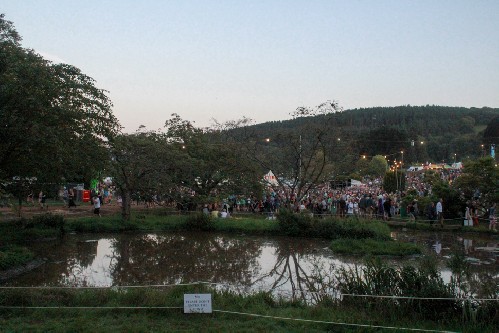 Green Man 2023 - The Review
Green Man 2023 - The Reviewanother stunning Green Man is bittersweet to depart
last updated: Sun 3rd Sep 2023
 The Green Man Festival 2023
The Green Man Festival 2023festival details
last updated: Fri 21st Jul 2023
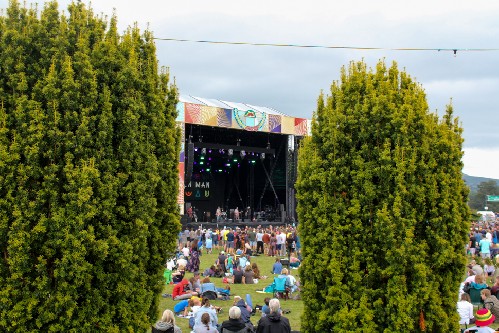 The Green Man Festival
The Green Man Festivalfestival home page
last updated: Mon 23rd Jan 2023

